Let’s reduce marketing to a very simple formula:
- Find out what people want.
- Let them know you’ve got it.
There really isn’t much more to it than that. Of course, you have to know who “they” are, and you have to work out how to communicate so they get the message.
But from this grand 30,000-foot viewpoint of simplicity, the big sticking point staring one in the face is finding out:
What Do They Want?
IT MATTERS
As you know, I’m addicted to pointing out the obvious.
You may not have even thought of it in these terms. That this is something to know, and that it is IMPORTANT.
When was the last time you bought something you didn’t want? You know, you went to the store to buy dinner, you saw something you don’t like, so you bought that?
Of course, we have to extend that to include things you need, but let’s consider that a grade or shade of want. I need insurance. I don’t want it. But I do want to avoid being stuck with a big fine AND paying for repairs from an accident because I didn’t have insurance.
THE FIRST BIG MISTAKE
The biggest error people make isn’t assuming they know what people want. After all, they may be right.
No, the biggest error is assuming you know what people want, despite abundant evidence to the contrary.
Let’s flip this over. How would you know you’re right?
If you’re right, using it will produce results. If you’ve concluded they want “A” and you say, “I’ve got ‘A’s’, and they don’t reach to hand over their money – well, somebody’s wrong. And it isn’t the consumer.
You may have to work this some to be sure. Maybe you didn’t advertise loudly enough or long enough or in the right place.
But don’t go on telling yourself what a genius you are while your sales go down, down, down.
FINDING OUT
Okay. So far this is preliminaries. Here’s the main event: How do you find out what your prospective customers want?
Again, I’m going to reduce this to a stupid simplicity: ASK THEM.
But that simplicity hides a lot of potential complications. They come down to how do you get an honest and complete answer? That’s far from obvious. Only the most naïve person believes everyone always tells the truth. Like politicians, right? Or you to your parents when you were a kid?
ASK SALES
One of the best ways is to talk to Sales. Your salesmen are talking to prospective customers all the time. If they don’t have a pretty good idea of what people really do want, they aren’t very good salesmen are they?
They should be able to tell you which of your products or services are likely to result in a first sale, what is appealing about each of your major products and services, what concerns have to be overcome, and a great deal more.
One of my favorite discovery questions for salesmen is to ask, “What do you say to prospects that produces the best response.”
MARKET RESEARCH…. UH NO
On the general subject of market research, there are many methods researchers use. Most of them are slow, useless, and expensive.
The inaccuracies of political polling tell you a great deal about what a bad job they usually do. Their excuses that it’s hard are just that. Excuses. If they knew what they were doing they’d get you the right answers, not something that results in the audience booing the players (listen up, NFL).
A “favorite” of mine is “focus groups.” Get a handful of people together and have them talk about a product or service or subject. Somehow this is supposed to inform researchers on public opinion. Except people, made to render opinions publicly, are notoriously likely to say what they think they should rather than what they believe.
So this is the opposite of solving our basic problem, getting real, honest, complete answers.
Let me just point out, if market researchers knew what they were doing, New Coke and the Edsel would have been grand successes.
GOOGLE ADS AS A RESEARCH TOOL
So, what can you do that works? One of the best tools ever discovered is Google Ads – the paid ads that appear at the top of the results page when you do a Google search.
You can run two ads and see which produces a better response. People don’t know they are being surveyed, and they have no incentive to click other than because they are interested by the ad. So, it tends to produce usable, reliable results.
Many marketers have discovered the value of this method. It is much cheaper and faster, as well as more accurate than “traditional” market research efforts. So what’s not to like?
I knew a guy who did infomercials. His livelihood depended on being able to put together a half-hour TV show to run in the middle of the night on cable TV, that would get people picking up their phone – or going online – to purchase.
He would put up a website for a new product, just so he could run Google Ads to work out wording for an infomercial. Thighmaster anybody?
BASIC PRINCIPLE
The basic principle is to “ask” in a way that will defeat the natural tendency of people to give “social” insincere answers or ones which are influenced by other factors than what they really think.
There are many other ways of doing this. Keep this in mind and you can invent your own or figure out whether any particular method is workable.








